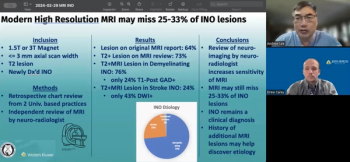
AMA, ACP leaders spotlight ‘emerging ethical lessons’ from COVID-19
The leadership of the American College of Physicians and the American Medical Association, in a joint letter issued this week, are calling for the U.S. healthcare system to wake up to the inequities laid bare by the COVID-19 pandemic.
The leadership of the American College of Physicians and the American Medical Association, in a joint letter issued this week, are calling for the U.S. healthcare system to wake up to the inequities laid bare by the COVID-19 pandemic.
Officials with the American College of Physicians (ACP) and the American Medical Association (AMA) are sounding the alarm for what they say are inequities exposed by the COVID-19 pandemic.
A joint letter this week from ACP President Jacqueline W. Fincher, MD, and former AMA President Patrice A. Harris, MD, pointed out that the pandemic has brought into focus the inequities in the system and that after the pandemic has passed things cannot go back to business as usual.
“As the COVID-19 pandemic evolves, it is offering some heard lessons about how American healthcare fails patients,” the pair wrote.
In the letter, Fincher and Harris noted that the “public health crisis of a pandemic challenges medicine's ethical duty to place the care of each individual patient first and foremost.”
Moreover, they noted “the rapid spread of COVID-19 and the acute needs of patients who have become seriously ill have forced healthcare professionals and institutions across the country to confront the prospect of rationing and the disproportionate impact of disease across the population.”
Specifically, the letter calls into question crisis standard of care plans which seek to allocate resources fairly. Fincher and Harris say that when these plans rely on clinically based considerations of medical need, prognosis, and effectiveness, as well as fundamental standards of equity and fairness.
“When these plans focus on process issues such as transparency, consistency and accountability they can be helpful tools,” they wrote. “But when they rely on criteria that discriminate against categories of persons, notably, elderly individuals or individuals with disabilities, they are not ethically defensible.”
The healthcare system must adopt a much more thoughtful and ethically, medically justifiable approach when it comes to clinical resource allocation planning post-COVID-19, according to the letter.
The letter also highlights the disproportionate mortality rate from the disease among residents of long-term care facilities, and in Black, Latinx, and Indigenous populations which are a product of structural barriers to appropriate care.
“To be sure, in the midst of a crisis, resource allocation tools that guide decisions for individual patients cannot by themselves redress deep-rooted problems, especially structural and social determinants that generate long-standing health inequities,” the letter says. “Leveling the playing field will require sustained collective efforts to change not only how society prepares for public health emergencies, but fundamentally how patient care is organized and delivered, moving toward a system that cares for all and directly challenges the taken-for-granted inequities of our current system.”
The letter concluded by noting that the ACP and AMA urge all physicians to heed the hard lessons of COVID-19. We cannot go back to business as usual after this pandemic passes.
“We must work together to build a society that supports optimal nondiscriminatory healthcare for all,” they concluded.
Newsletter
Don’t miss out—get Ophthalmology Times updates on the latest clinical advancements and expert interviews, straight to your inbox.





























